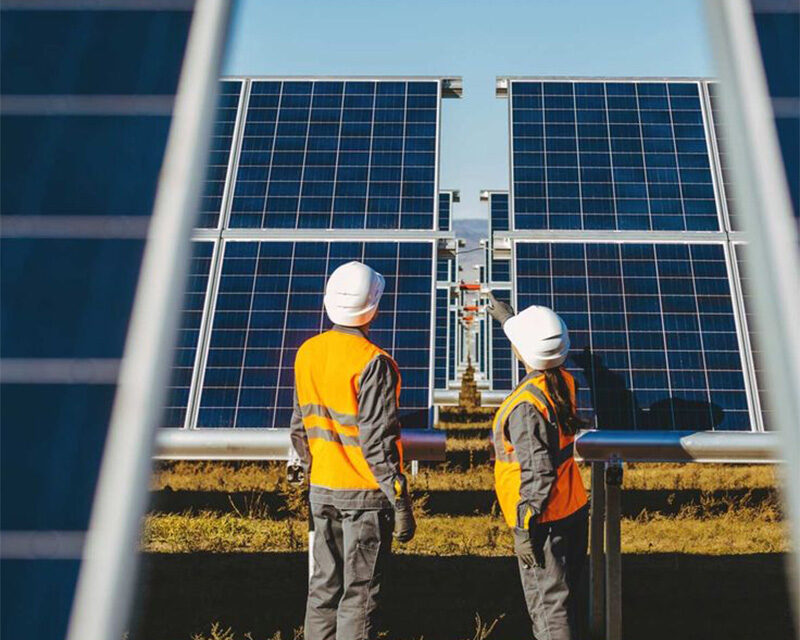As climate change accelerates, cities and infrastructure face unprecedented challenges. Rising sea levels, extreme heat waves, more intense storms, and changing weather patterns require a proactive response. At CONSER, we recognize that the future of engineering lies in adaptation—designing and building infrastructure that not only withstands these changes, but also promotes sustainability and resilience.
Through innovative engineering, smart technology, and sustainable practices, CONSER is leading the way in climate-resilient solutions for urban environments, transportation networks, and water management systems.
Climate-Resilient Infrastructure: A New Standard
Traditional infrastructure has been designed for historical climate patterns. However, with unpredictable climate conditions, CONSER is rethinking how we build roads, bridges, and urban developments. Our approach integrates:
-Flood-Resilient Design—Build elevated roads, improve drainage systems, and use permeable materials to reduce urban flooding.
-Heat-Resilient Materials—Implement reflective surfaces and heat-absorbing pavements to mitigate urban heat islands.
-Storm-Resistant Structures – Strengthen bridges and buildings to withstand extreme weather events, from hurricanes to sandstorms.
By designing with future climate conditions in mind, CONSER ensures that critical infrastructure remains safe, efficient and durable for decades to come.
Smart Water Management: Protecting a Precious Resource
Water scarcity and flooding are two sides of the same coin. Many cities now struggle with drought in some seasons and flash floods in others. CONSER’s water management expertise focuses on:
-Sustainable Drainage Systems – Reducing flood risk by incorporating green roofs, biosphere marshes and aquifers.
-Water Recycling and Reuse – Implementing smart irrigation and wastewater treatment solutions to conserve water resources.
-Resilient Coastal Engineering – Designing seawalls, mangrove restoration projects and natural barriers to combat rising sea levels.
These innovations not only protect urban areas from extreme weather, but also promote water conservation and long-term sustainability.
Sustainable Transport Solutions: Adapting Mobility for the Future
Transport networks are the backbone of modern cities, yet they are highly vulnerable to climate-related disruptions. CONSER is actively engineering climate-resilient transport systems by:
-Developing smart, low-carbon public transport – improving metro, tram and bus systems to reduce dependence on fossil fuels.
-Designing weather-resistant roads and bridges – enhancing transport infrastructure to withstand floods, landslides and extreme heat.
-Promoting green mobility – incorporating pedestrian-friendly urban designs, cycling networks and electric vehicle charging infrastructure.
By prioritizing sustainability and resilience, CONSER helps cities adapt their mobility systems to an ever-changing climate while reducing their carbon footprint.
The role of technology in climate adaptation
Integrating artificial intelligence, data analytics and smart monitoring systems is critical to climate change adaptation. CONSER leverages technology to:
-Predicting climate risks – using data-driven modeling to assess vulnerabilities and design proactive solutions.
-Monitoring Infrastructure Performance – Deploying IoT sensors to track structural health and environmental conditions in real time.
-Promoting Sustainable Urban Planning – Creating adaptive urban landscapes that balance development and nature.
By embracing cutting-edge technology, CONSER ensures that its engineering solutions are not only innovative, but also future-ready.
Conclusion: Engineering a More Resilient Future
As the world faces increasing climate challenges, CONSER remains committed to developing pioneering climate-adaptive engineering solutions that protect communities, conserve natural resources, and build sustainable, resilient cities. Through advanced infrastructure design, water resource management, sustainable mobility, and smart technology, we are shaping a future where climate adaptation is not an afterthought, but a fundamental aspect of engineering.






